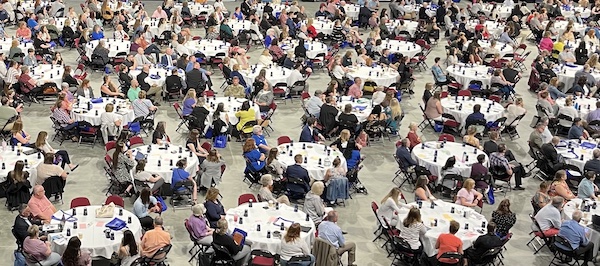For one human being to love another; that is perhaps the most difficult of all our tasks, the ultimate, the last test and proof, the work for which all other work is but preparation.
– Rainer Maria Rilke
Eight years ago, devastated by my daughter Elisif’s death from overdose, I was driven to do something in my home city of Baltimore. Joining with people challenged like she was by circumstances beyond their choosing (the homeless, the traumatized, the addicted), I launched into art and advocacy work. We allied with a broad range of others, all giving and receiving, all intolerant of injustice and full of compassion. In our diversity, through art and stories, we shared fellowship, and together found connection.
We created the world of peers we needed.
Among my peers I felt such balm. Our work accomplished so much for so many, and for years this activism was exactly what I needed. My community held me, and Elisif’s spirit hovered in their presence. I loved every day of it. I needed nothing else.
Over time, though, I realized communal work could only take me so far. After five nonstop years of effort I was exhausted, and knew private grieving lay ahead that nobody could do for me. I needed quiet – space to write, time to make art. I needed solitude.
So I moved from Baltimore to Maine.
Three years later, through art-making and writing, solitary days steeped in nature, I am replenished, overflowing again with the desire to do.
I am ready for another turn – or return.
A return to my peers, in the broadest sense of that word.
A clarification here: I reject connotations around that word as often understood in the field of substance use support services. Too often, “peer” is perceived as applying exclusively to those whose lives have been marked by extreme hardship: adverse childhood experiences and addiction, homelessness and incarceration, trauma and mental illness. It’s so often seen as a euphemism, referring only to folks with those sorts of experiences – outliers who are less than normal.
In my mind, that over-simplification is counterproductive, if not harmful.
At the same time, there is risk in equating all experiences of challenge: not all hardships are the same, and “peer” is sapped of all meaning if we blithely assume otherwise.
So what do I mean when I use the term?
In those years in Baltimore after my daughter’s death, we allowed space for each other’s distinct lived experience; we accepted our own and each other’s vulnerabilities and flaws; we supported one another, offering our gifts for the good of the whole.
In other words, we were humans sharing our pain and fears. We were peers.
Here in my new home (in Maine), I am ready to give and receive again – I want to return to being a peer among peers: with Michael and Donna, giving voice to the too-often-voiceless suffering in the shadow of opioids; with Brian and Meredith, creating common space for the hurting and the helping; with Jess and Keith, pivoting from pain and trauma to helping others; with Gordon and Nirav and the hundreds gathered just days ago for Governor Mills’ 4th Annual Opioid Response Summit, working to make a difference in the face of the ongoing devastation of the opioid epidemic.
We are humans – peers whose work is rooted in a love that heals and saves.
And that honors those we’ve lost.
(I miss you, Elisif.)
Photo by Peter Bruun, taken at Governor Mills’ 4th Annual Opioid Response Summit, July 11, 2022, in Bangor, Maine.

